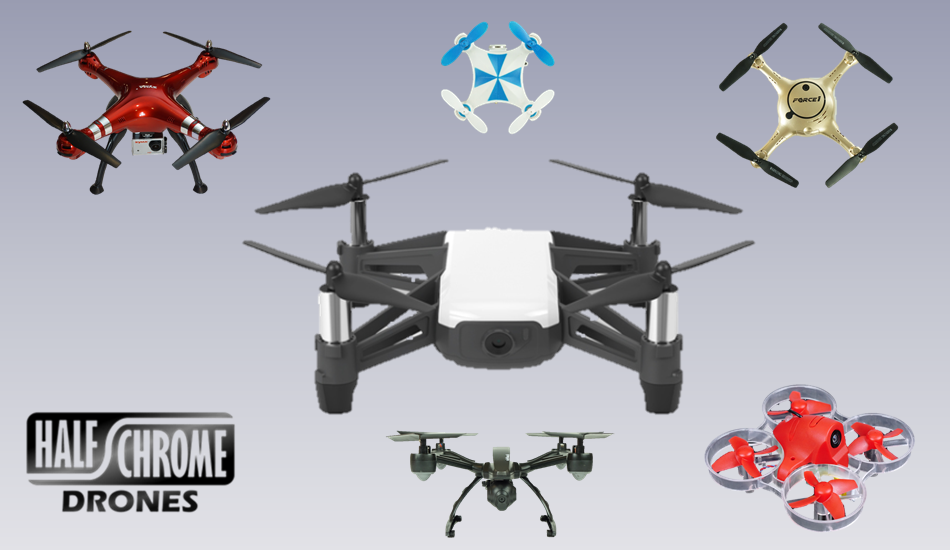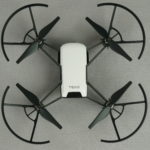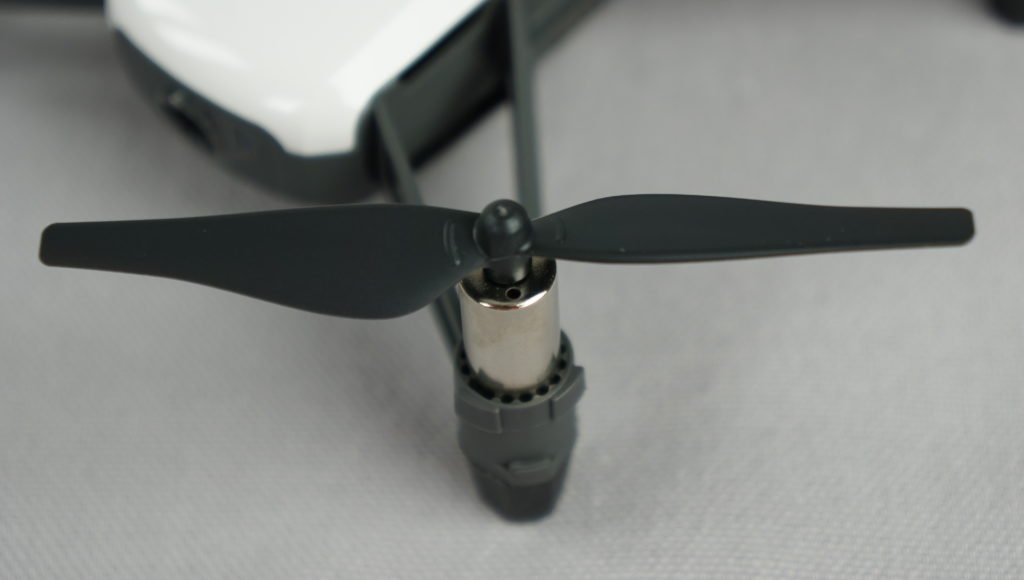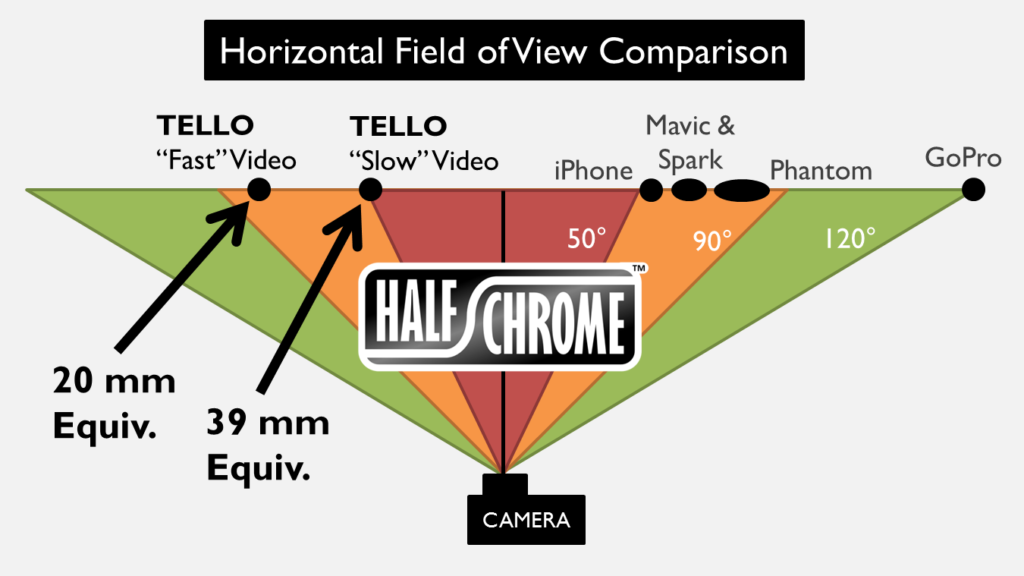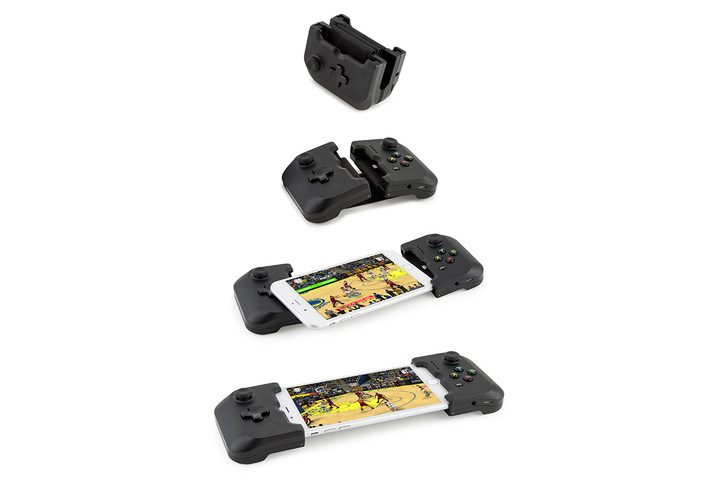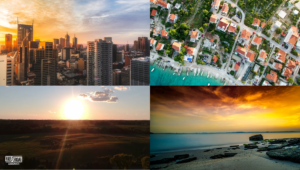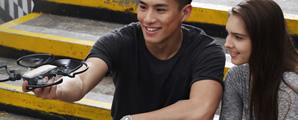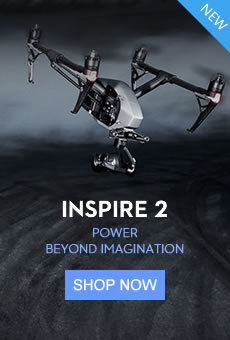On January 8, 2018, DJI and Ryze changed the market for inexpensive quadcopters forever with the release of the $99 Tello. Our first reaction was “oh snap, the toy drone makers are screwed.”
There are plenty of good quadcopters under $100 but before the Tello, they all had one huge problem holding them back – none of them had a good camera. With a real camera on a drone for under $100, the Tello stands to put a lot of smaller competition out of business.
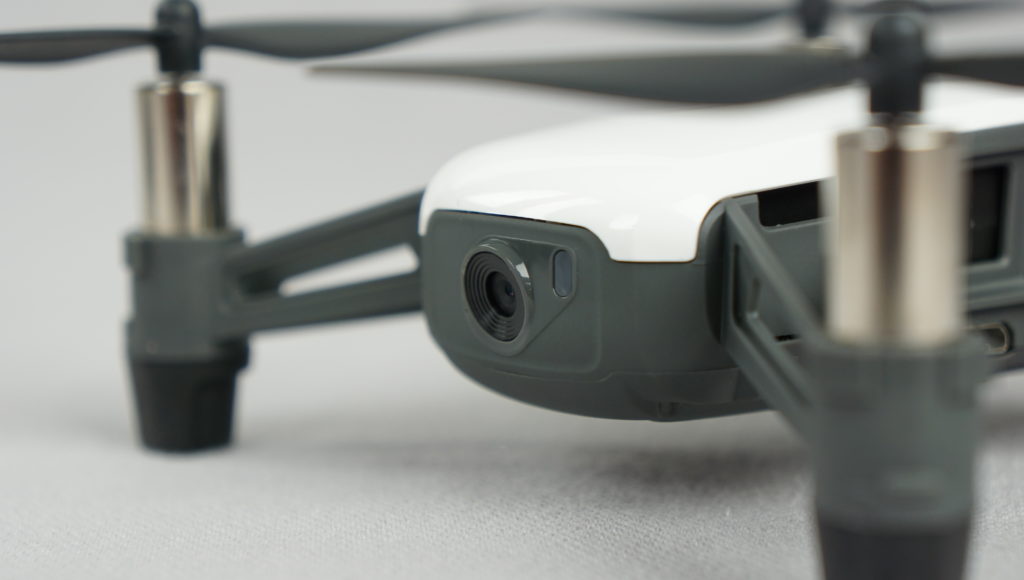
Cameras – Tello Vs. Toys
We have looked at hundreds of toy drones and analyzed the image quality they produce. What we found is that you just can’t buy a camera drone with notable image quality unless you are willing to pay over about $250. The resolution on toy drones ranges from 0.3 to 2 megapixels and frequently the quality doesn’t even live up to the resolution. Problems with these cameras include poor focus, vignetting (dark corners), distortion (fisheye effect), and bad rows of pixels. And that’s just the start of the issues we see.
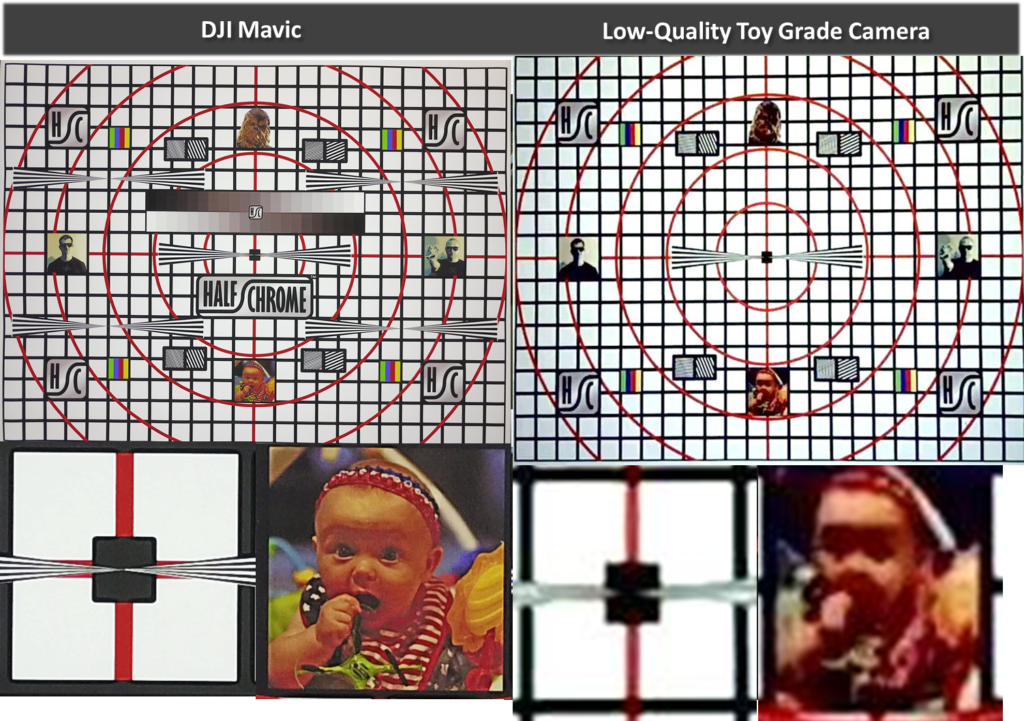
There is just no comparing between a high-end drone and a toy. The Tello is the first drone under $100, heck under $200, that can take a picture worthy of sharing. Not only does the Tello shoot 5-megapixel pictures, but it also includes image stabilization. The upgrades you get with the Tello don’t stop with the camera, let’s take a look at what else DJI did right.
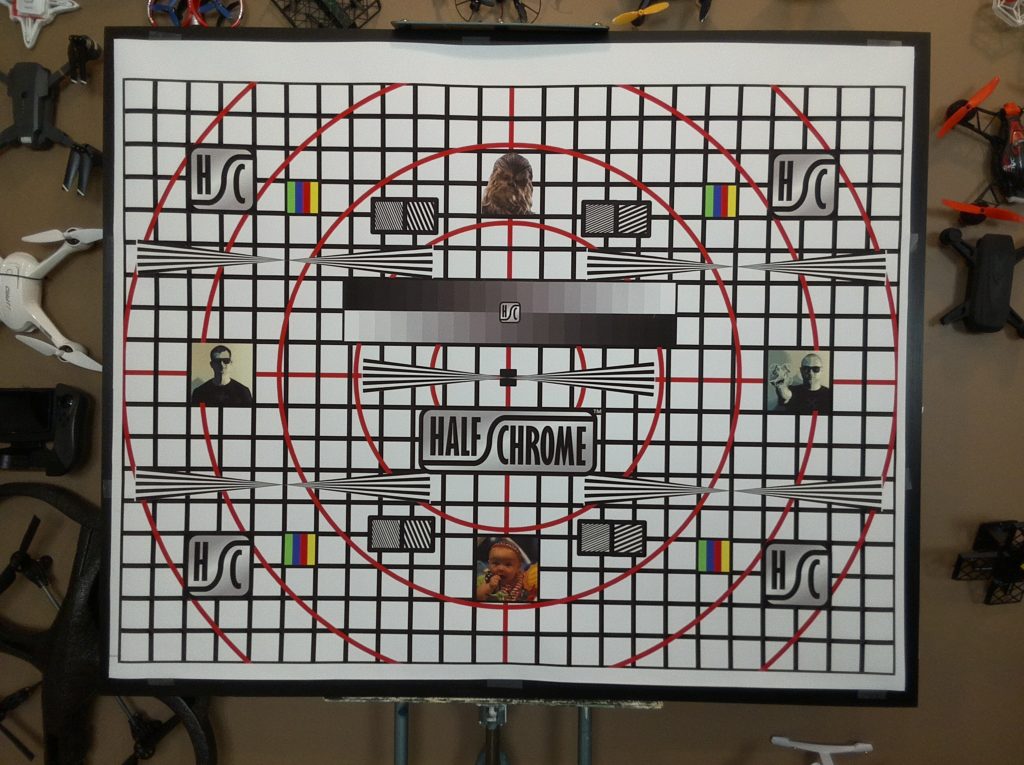
Big Props
The 3-inch props on the Tello are the biggest we have seen on a direct-drive brushed-motor drones. This means that the Tello will be faster and more responsive than the competition. Most toy drones with bigger motors will have gears to run much larger props at much slower speeds.
Downward IR Sensors
Downward IR sensors are a first for a drone under $100. It’s actually the first for a drone under $300. The closest thing is the sonar on the bottom of the Parrot Mambo. The IR sensors on the Tello help with smooth takeoff and landing as well as palm launch and downward obstacle avoidance.
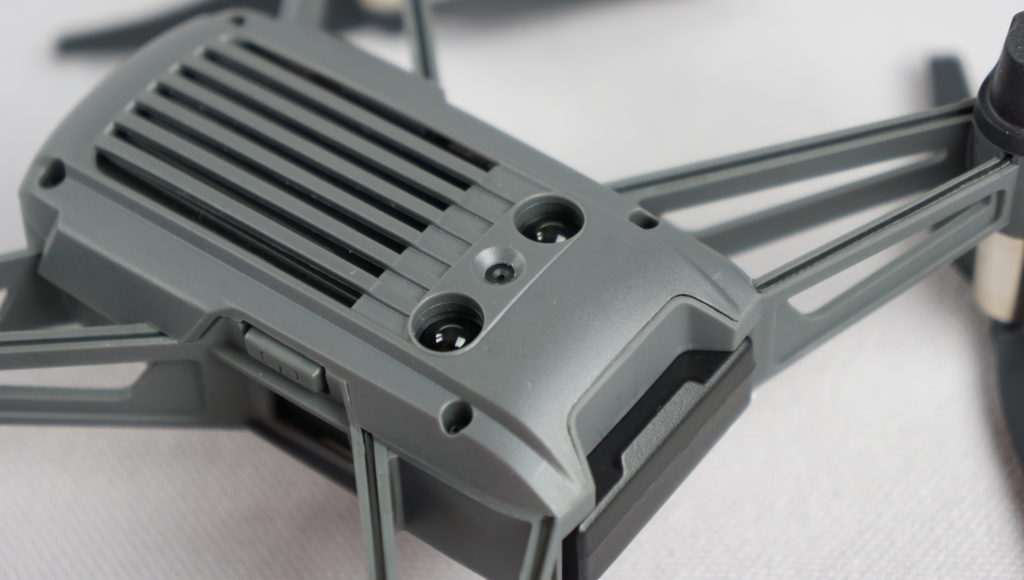
Optical Flow
There are a few inexpensive drones we have tested with optical flow including the Cheerson CX-OF and the FY919 Reaper. This feature helps keep the drone super stable as long as the wind is minimal and the drone is relatively close to the ground. To be a big hit the Tello needs this feature and it has it, so they checked that box. We expect the Tello to be exceptionally stable. We tested the Parrot Mambo and it is really fantastic.
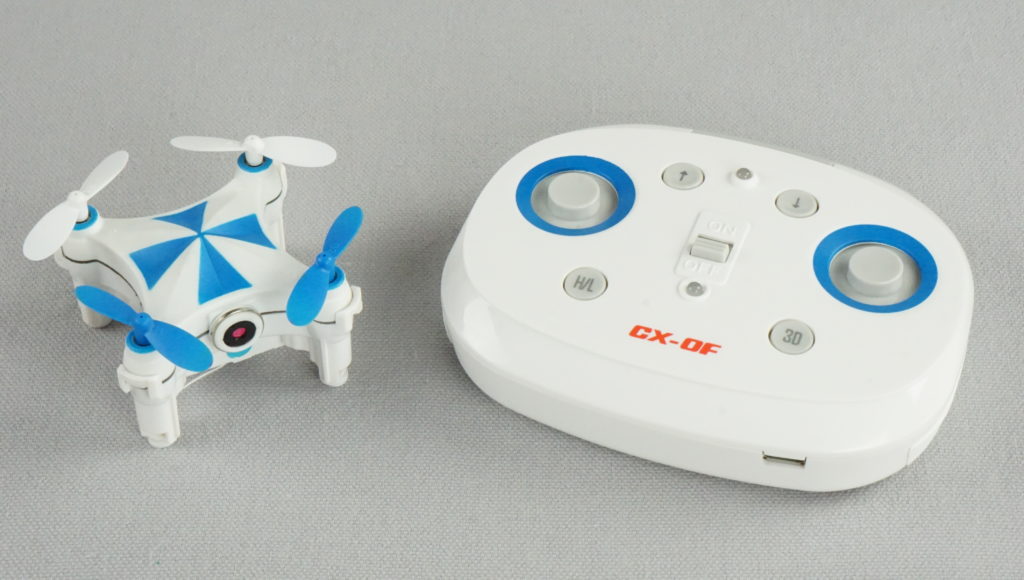
Wide(ish) Field of View
The 83-degree horizontal FOV on the Tello (20mm equivalent focal length) is reasonably wide, it is similar to other higher-end DJI drones like the Mavic and the Phantom 4 Pro. When you are flying in slow mode it narrows to 59 degrees, which is close to what you get on a smartphone. It is much wider than most toys, which frequently measure in the 35° to 50° range. We thing DJI and Ryze settled in on a pretty good number.
Programmable
There are very few drones that you can program to perform specific routines. Parrot was the first to do this with their AR Drone and more recently the Mambo, which uses the coding language Tynker. The Tello includes this capability in the form of the programming language Scratch. We have not experimented with either, but people have suggested that Tynker is better suited for younger children while Scratch is better for tweens and teens as well as adults.
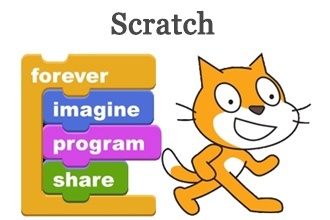
Flight Time
The flight time on the Tello is 13 minutes. That may not sound like much compared to the 30 minutes you can get on the Mavic Pro Platinum, but trust us, that is a long time! Most toys can only fly about 7 minutes before tapping out, the Tello is almost twice that. The Tello excels because of efficiently custom props and a huge battery. Ryze did really well with this aspect of the design. Some toys, like the larger Blue Heron from Force 1 can approach 15 minutes of flight time, but that is on a much larger drone.
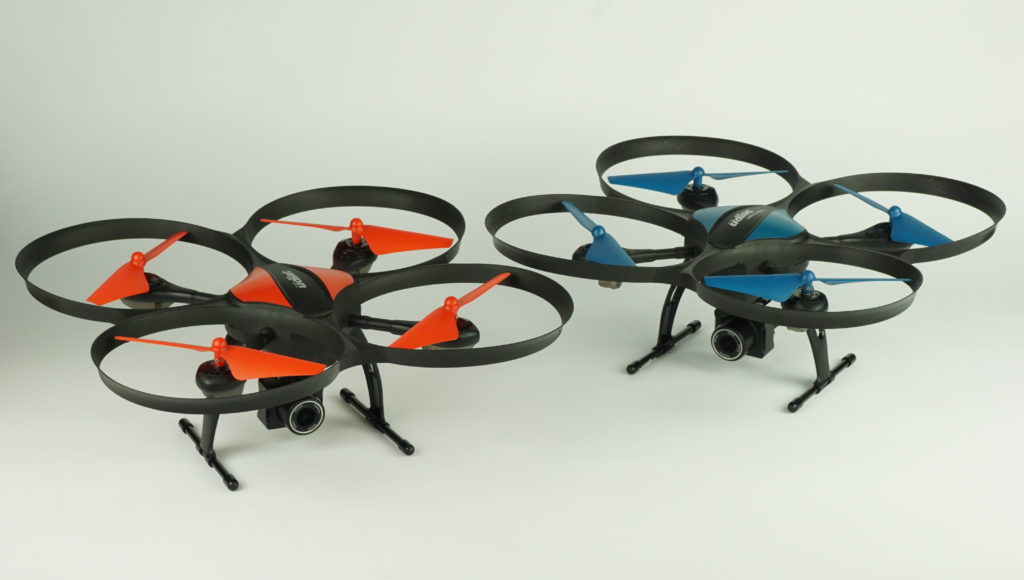
The REAL Price of the Tello
OK, So you get a ton of capability for less than $100, but what is the real cost of the Tello? The price only starts at $99. For that price, you’ll get the drone, two sets of propellers, propeller guards and one battery. An extra battery will cost you $19, another set of props runs $3 and if you want a Bluetooth remote you’ll have to provide your own. According to DJI’s site, you’ll need a Gamevice remote.
The Gamevice is the recommended remote to control your Tello.
DJI recommends the GameVice controller to control the Tello. Adding a physical remote makes flying a little easier and gives you some added control. Take a look at the GameVice controller. You can order it directly from DJI or pick one up from Amazon. There are models that work with iPhones, iPads and Android devices. It is a small and compact controller and will also double as a gaming remote for your favorite mobile games.
| Pick up a Gamevice controller from Amazon | Order the Gamevice controller directly from DJI |
For goggles, you will want to pick up a set of Google cardboard or equivalent smartphone-compatible VR goggles. You can pick up a decent set for about $20. Wrapping up the total cost, you are looking at about $140 to $180. You think the Tello may still not be such a good deal? Think again. Even if you spend $180 on your Tello and accessories, the Tello knocks the socks off of the closest competition, the Parrot Mambo. The Mambo is priced at about $180 including a remote, camera, and goggles. Read our complete comparison of the Mambo and the Tello for more details.
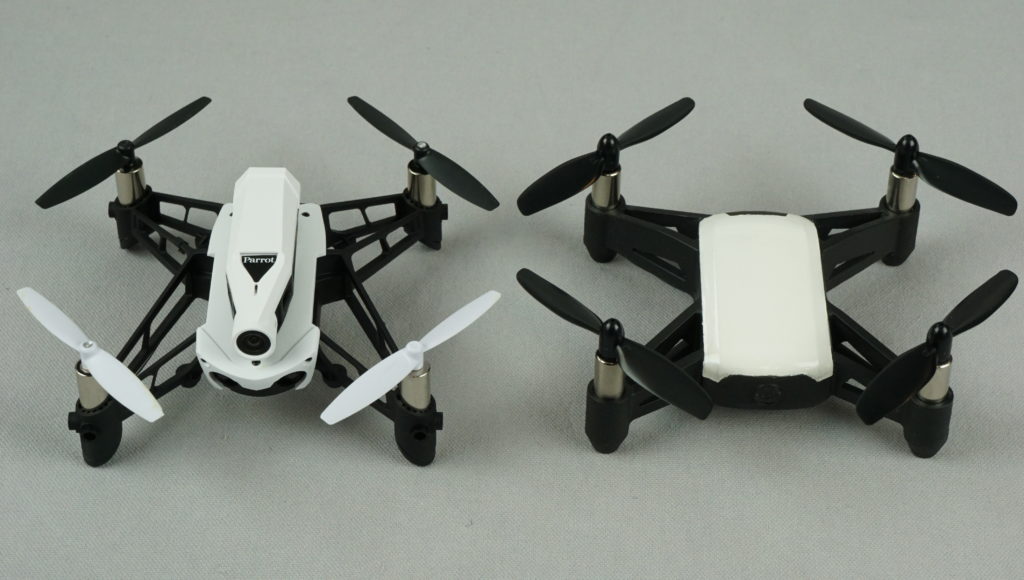
| Order a Ryze Tello from DJI |
More Drones…
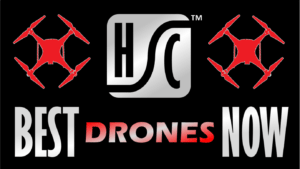
Every month we update what we believe are the best drones on the market. Check out Best Drones Now. We have also created the one-of-a-kind Half Chrome Drone Cipher™. You answer a few questions and we’ll pair you with the best drone for you.
| Best Drones Now |
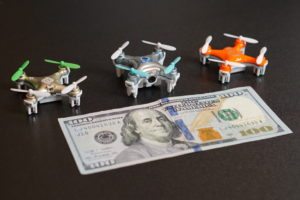
Do you want to search by price? Click on your menu above or we can break it down for you. Check out drones under $50, from $50-100, from $100-200, from $200-500 or over $500. Maybe you like a good Top Ten list, we’ve got you covered.
| Drones by Price |
Learn More…
If you want to learn more about taking great pictures or flying FPV then check out our comprehensive guides on those topics. Also take a look at our articles on how to choose the right drone for great aerial photos or for getting started flying race drones. Learn more about drones and how to get the most out of them in our Drone Academy. In the Academy we also detail some of the advanced testing we do, including our recent addition, drone thrust testing.
| Drone Academy |
I Want Videos…
Did you know that Half Chrome has its own YouTube Channel? We have reviews, flight tests, crashes, 360-degree videos and more. Check it out and subscribe today.
| Half Chrome YouTube Channel |
Disclosure:
This website contains affiliate links, which means we receive a commission if you make a purchase using these links. For full details visit the disclosures and disclaimers page.
- Beginner
- Discounts
- Wedding
- Youth


